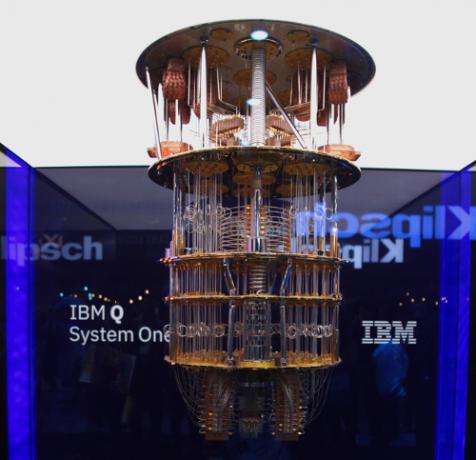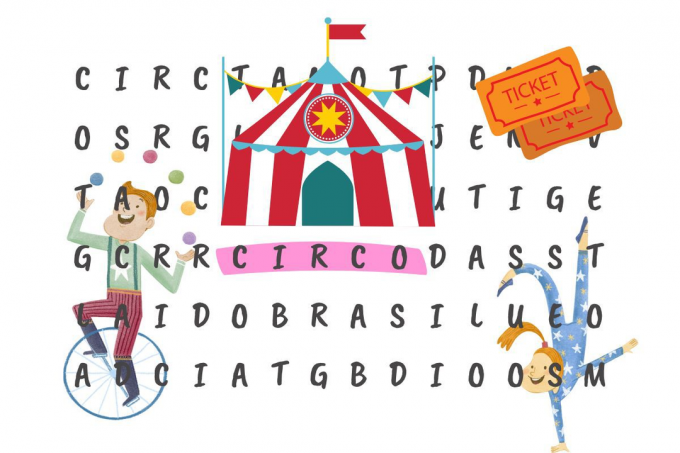computingquantum is the science that studies the development of algorithms and softwares based on information that is processed by quantum systems, like atoms, photons or particlessubatomic. Unlike classical computers, quantum computers operate according to the probabilistic laws of quantum physics.
The possibilities provided by quantum computing open a new horizon for technological development and allow us to envision a future with computers capable of solving more complex tasks in ever-increasing times. minors.
Lookalso:Physics discoveries that occurred by accident
What is a quantum computer?
O computerquantum is a machine that can be scheduledforsolveproblemslogical, as do today's electronic computers. While our computers use the electrical current that runs through the transistors to emulate bits 1 and 0, quantum computers do it based on quantum measurements, such as energy levels of a cluster of atoms, the directions of polarization of photons etc.

How does quantum computing work?
Quantum computing is based on the development of logical algorithms that can be executed by a different type of computer than a conventional computer. Quantum computers are extremely complex machines and that depend on a thermal balance too delicate. Most of these computers can only operate at very low temperatures, so they are cooled to around -272 °C by means of nitrogen or liquid helium.
This is because the bitsquantum(also called qubits) they need to be in "tuning" all the time (technically, we say they need to be in phase), and any sudden temperature variation can "shuffle them".
Classical computing is done through circuits that register and control the passage of electrical current. Roughly speaking, when the passage of the electric current, the computer records this information in the form of a bit, which can be 0 or 1. All tasks performed by computers work by manipulating these bits.
In quantum computers, in turn, information is obtained from other things, such as the direction of the spin of an atom, the polarization of a photon, the energy levels of a cluster of atoms, etc. Despite being different from each other, these systems have one thing in common: are governed by the laws of quantum physics.
To develop a deeper understanding of quantum computers, we need to know some of the weirdness of quantum mechanics, shall we?
See too:Heisenberg's Uncertainty Principle - One of the Most Curious Principles in Physics
Computing and quantum mechanics
At laws governing the behavior of quantum bits are completely different from those of classical physics.
According to the classical physics, before opening a box containing a lamp, only two results are expected: the lamp will be on or off. However, according to the laws of quantum mechanics, the state of the lamp cannot be affirmed without having directly observed it.
If we assume that the lamp in question is a quantum object, before we open the box, the state of the lamp would be a combination of all possibilities. The moment the box was opened, all combinations of states would disappear and the lamp would assume only one of the possible configurations: on or off. It's as if the ignorance condition about what's inside the box would make the light bulb go on and off at the same time, but what makes nature choose one of the states? We do not know.
This feature of quantum mechanics allows qubits to assume all possible states before being observed. In practice, qubits consider the result of an operation even before it has been finished, it is as if we could know the result of a game of heads or tails when the coin was still in the air.
The possibilities of quantum computing offer a huge computational gain, since each qubit is equivalent to 2 classic bits, therefore, a quantum computer that operates with 64 bits is equivalent to a classic computer equipped with 264 bits (about 1.8.1019 bits). The numbers only reinforce that quantum computing is a big bet for the future.
Lookalso:7 questions physics hasn't been able to answer
Quantum computing today
In recent years, technological advances allowed the creation of the first processorsquantum functional. Since then, the advance in the construction of quantum chips has been happening at an accelerated pace, in part due to great commercial interest from the industry. safety,cryptocurrencies,banks,universities and others.
Large computer companies such as Google and the IBM, have produced ever more powerful quantum computers. The latest release is Google's quantum computer, which has "only" 53 qubits. This computer was able to perform in minutes a calculation that the world's fastest computer would perform in at least 10,000 years.
By Rafael Hellerbrock
Physics teacher
Source: Brazil School - https://brasilescola.uol.com.br/o-que-e/fisica/o-que-e-computacao-quantica.htm

